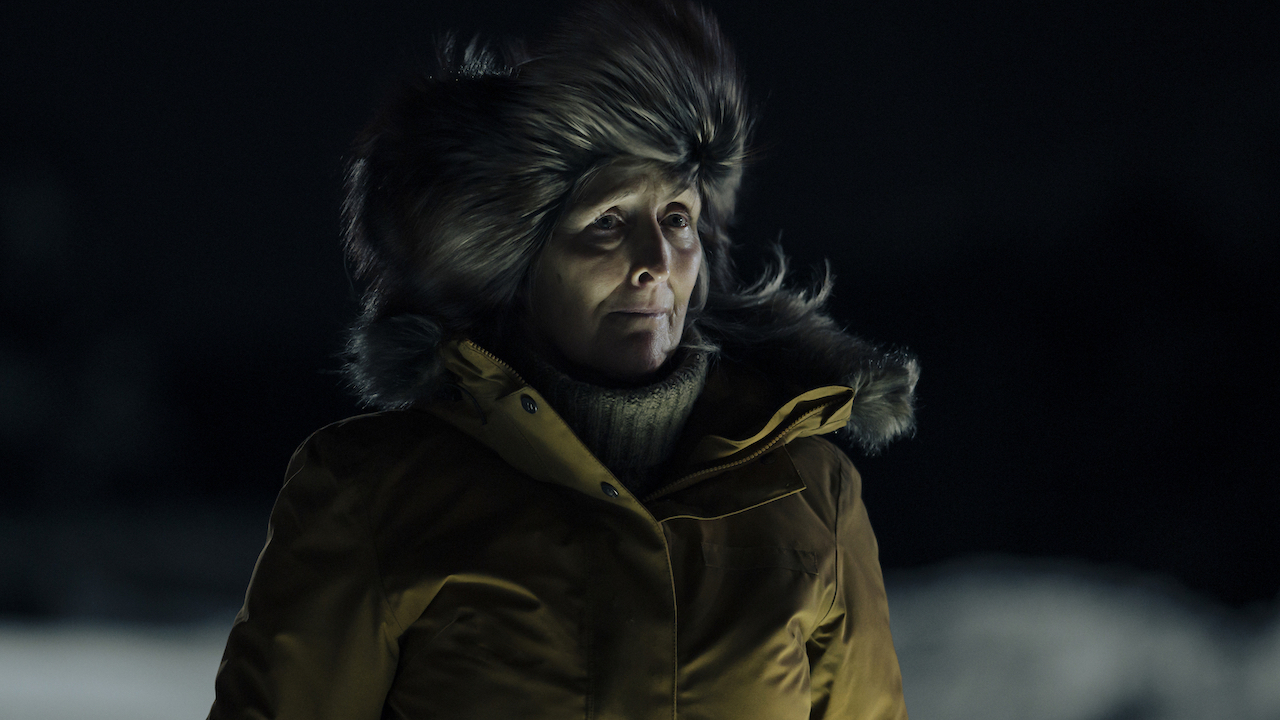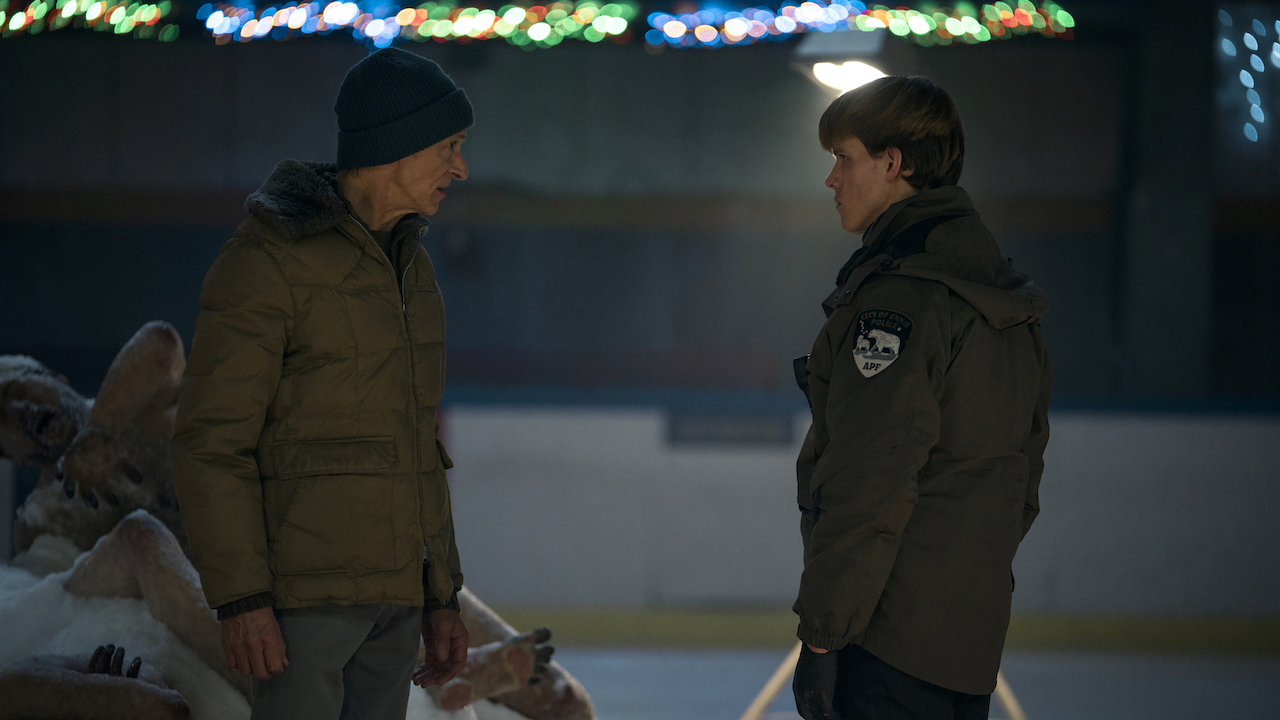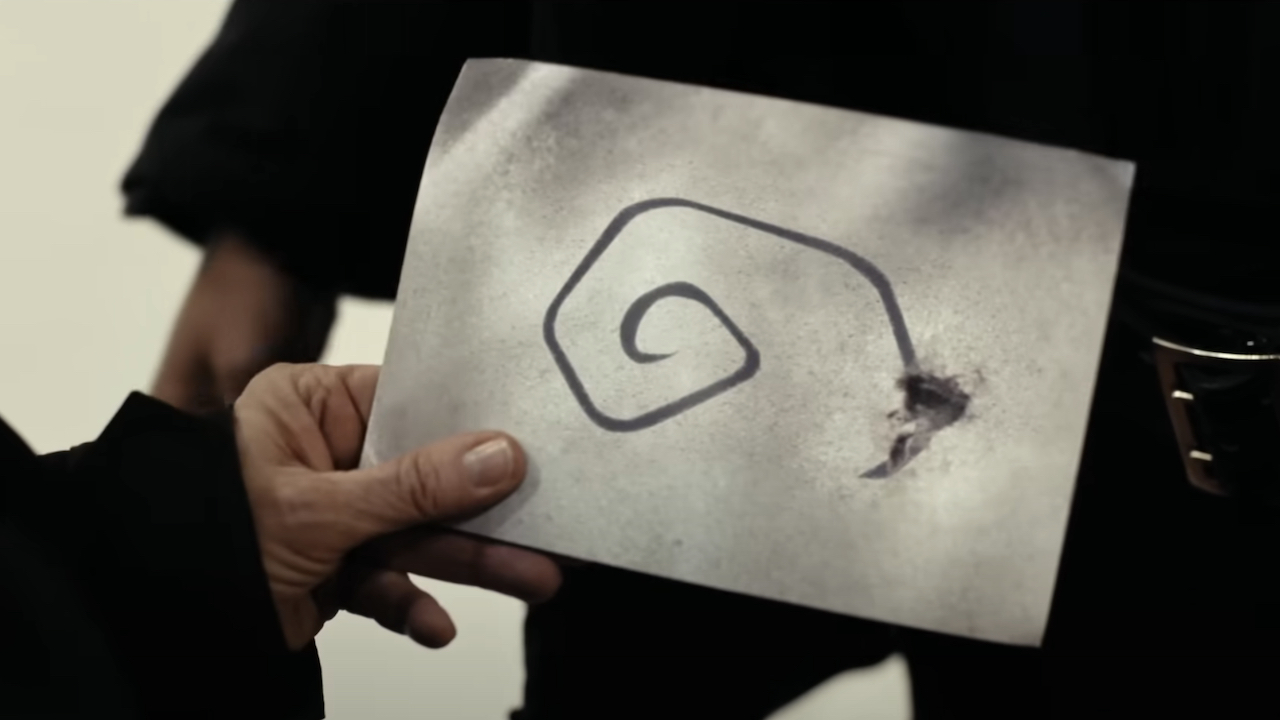
Spoilers below for the second episode of True Detective: Night Country, so be warned if you haven’t yet watched on HBO or streamed with a Max subscription!
We’re just two weeks into the fourth season of HBO’s mystery thriller, and True Detective: Night Country surprisingly already confirmed its genetically direct connection to the Carcosa-bound first season, proving true the fan theories about Matthew McConaughey’s Rust Cohle. It was cool and all, and I’m definitely invested in the baffling murder mystery on the whole, but several nitpicks have arisen just as quickly as that reveal.
I can’t wait to see what in the world went on at the Tsalal Research Station that doomed the eight scientists working there, as well as what led to their frozen-in-shock fates. But I now realize in full that getting to such answers means having to deal with some of the complaints critics had with Night Country amidst all the praise. So let's drive an icepick into the most annoying details about this season so far.

It's Never Ever Clear What Time Of Day It Is
By all means, I fully grasp and embrace that one of True Detective: Night Country’s biggest hooks is its fairly unique Alaskan location and its seasonal lack of sunlight. I can think of more than a few unsettling attributes of living in constant darkness, and it’s certainly an interesting and effective backdrop for a bizarro murder case, where potentially all characters are susceptible to darkness-related mental stress. (The opposite approach fueled Christopher Nolan’s daytime-filled thriller Insomnia.)
So I’m not knocking that idea at all, but rather how the show has handled it in these initial installments. Because for the most part, it seems like Ennis’ hustle and bustle is taking place at any and all hours, with only a few instances where specific times of day were brought up. And even in those moments, time doesn’t seem to really drive what anyone is doing.
Episode 2 hits upon that awkwardness with flying colors, particularly when it comes to the actions of Chief Liz and her daughter Leah. After seemingly a full day, Liz arbitrarily begins unboxing Christmas decorations, which Leah avoids by saying she’s in bed, though she actually sneaks out for a romantic tryst. Liz immediately gets frustrated with tangled lights and seeks out a tryst of her own. Both of those happen, with Leah’s walk home sidetracked by her visiting Finn Bennett’s Peter while he’s on duty watching the melting corpse.
And then even more shit happens, and at no point does anyone share any worries or concerns about it being so late. In fact, seemingly the only time anyone in True Detective: Night Country needs sleep is when the narrative requires a dream sequence or something in that vein.
Does that mean I want there to be a constant flow of time updates popping up along the top or bottom of the screen as the story goes on? Not necessarily, but it might be helpful if the eps would at least mark when one day and date changes to the next.

Nobody In Ennis Locks Their Doors Or Respects Other People's Privacy
Even after only two episodes, I’ve come to the conclusion that everyone who lives in Ennis just fully expects others to enter their homes willy nilly, whether the owners are there or not. And I’m not altogether certain whether this is meant to be representative of small-town folksiness, the long and access-friendly arm of the law, or if the notion of locked doors and privacy just wasn’t a big push for showrunner Issa López.
Regardless of what the reasoning is, I cannot imagine it could ever be proper police protocol to leave that ice rink unlocked and unsecured, with only a single officer keeping watch. Whenever Hank waltzed in unannounced and assaulted Peter for the box he stole, I figured he probably had keys to the building. But that wouldn’t explain how Leah was also able to spring up on Peter unannounced. What if someone legitimately wanted to fuck with those corpses?
Even more befuddling was Kali Reis’ Navarro arriving home to find Liz already inside, and making a comment about hiding her key rather than freaking the hell out. Which implies that it’s not at all the first time Liz would have done such a thing, despite the fact that these women actively dislike and avoid each other.
On the one hand, this kind of detail could be seen as screenwriting shorthand, in that characters’ conversations and confrontations happen quicker. But it comes at the expense of believability. If True Detective wanted to set up Liz as the kind of guileful cop who can find her way into any room or building, that’s one thing, but it waters down the effect when everyone in Ennis has the same power.

Every Time A True Detective: Night Country Character Acts Like A Simple Concept Is Super-Complicated
One of my biggest movie and TV pet peeves involves a scientist (or similiarly non-moronic character) trying to explain something, only for a blue-collar lead character to rudely interrupt and whine about the language being too intricate. Or when a project's fairly simple themes, patterns, and/or visual elements are over-complicated to the point of ludicrousness. Somehow, True Detective: Night Country already tapped into both of those.
First, there's the familiar spiral shape that serves as one of Night Country's connections to Season 1's case. More than one of the Tsalal scientists boasted it as a tattoo, and it's also been seen scrawled in other places, so it's clearly an important clue. But Liz and others treat the symbol as if it's some inscrutable ancient glyph or something far more complicated. Sure, it's not the traditional hypnotic swirl, but it's still just a spiral.
I also case some doubt on any tattoo artist actually remembering inking a spiral of any shape/size onto someone without a passionately detailed diary entry to reflect on. But maybe.
Then there was Liz's high school visit to see her teacher fuckbuddy in the hopes of gleaning some info about the Tsalal facility. I was already wondering why someone of her authority wouldn't have prior knowledge, but then Liz opened up a window into her general level of intelligence during this exchange:
- BRYCE: They spent decades trying to sequence the DNA of an extinct microorganism that could potentially stop cellular decay.
- LIZ: Try it in English, nerd.
Absolutely no parts of that sentence should be difficult to grasp for most adults, or a good number of teens and younger children. The actual act of sequencing DNA presumably takes a high level of education, but grasping a single sentence about it, and how cells work, requires going to elementary school. And if all it takes to be called out as a "nerd" in Liz's eyes is the ability to retain basic-ass information, how am I supposed to think she's going to solve any case that goes beyond two already interlinked puzzle pieces?
These gripes are all a bit hyperbolic, obviously, but this is the one that really put me over. Because I actively stopped comprehending the presumably vital exposition as soon as Liz unwittingly donned her dunce cap, and could then only question whether she would also get confused by such novel ideas as times tables and food pyramids. And that's not the best audience reaction to provoke for a show that theoretically wants its audience to be poring over every line of dialogue and piece of set decoration for clues.
For all that I've prattled on about above, none of it is going to stop me from tuning into HBO every Sunday night at 9:00 p.m. ET for the remainder of True Detective: Night Country's episodes, because I gotta see what the hell happened to these scientists. (And hopefully it's in English, ya friggin' dorks.) Until then, head to our 2024 TV premiere schedule to see what other shows are on the horizon.

Post a Comment